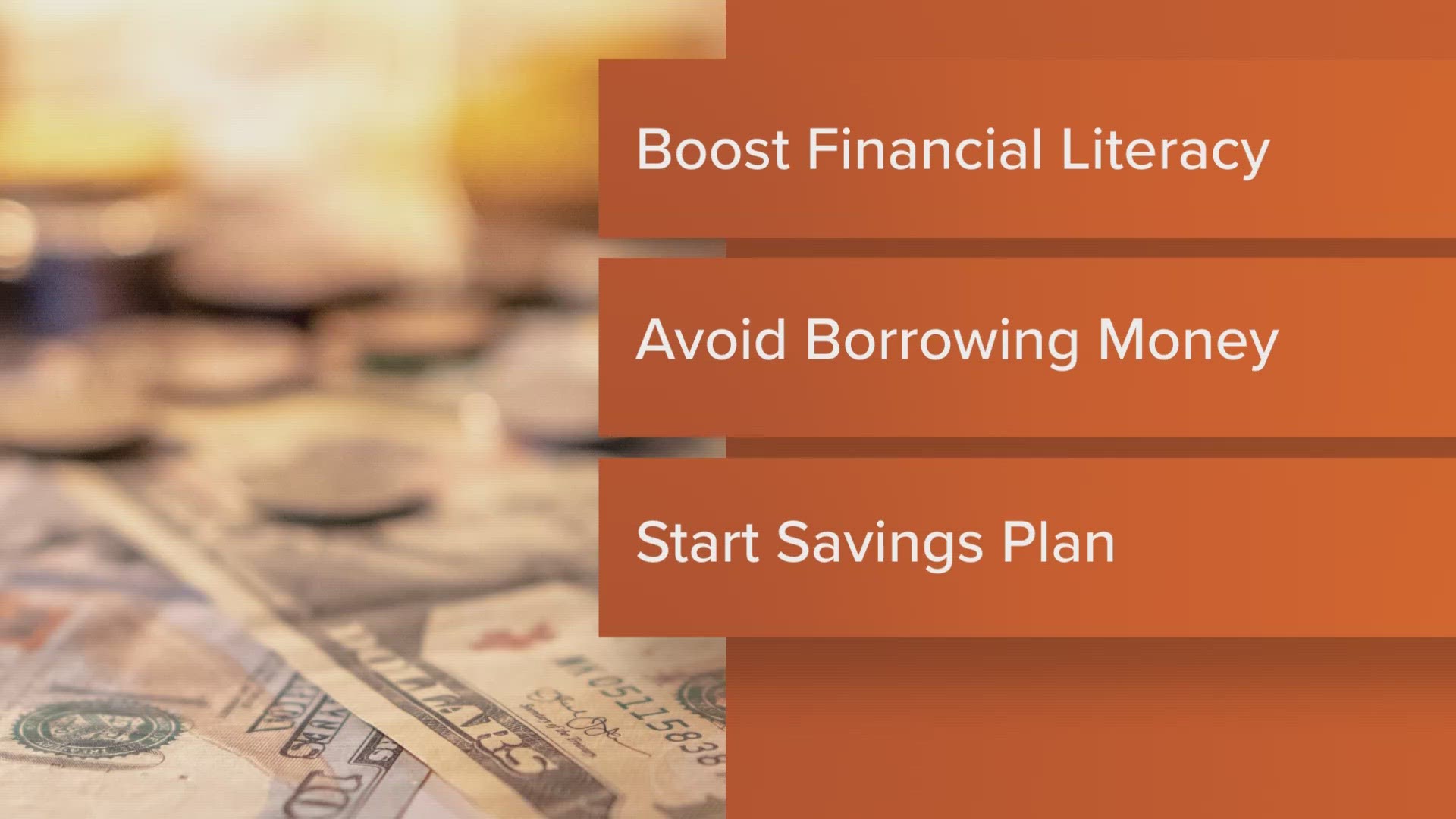CARMEL, Ind. — Once again, it is time to set a few New Year's resolutions. If some of your goals revolve around your financial health, you're not alone.
After another year of high inflation and interest rate hikes, most people are ready to get their money back on track, according to financial advisor Mike Lemaich at Global Fund Management in Carmel.
"Things are tougher," Lemaich said. "There is no doubt. The last two to three years, we've been through a lot."
The good news is, according to Lemaich, inflation is coming down and interest rates are likely to follow. Plus, if your New Year's resolutions include making the most of your money, Lemaich said you can start today.
"We want to look at this last year," Lemaich said. "Did we kind of meet our goals for last year? Then, we want to continue that forward. What are we trying to do going into 2024?"
So what financial goal should you set for 2024, and how do you stick to it?
Start a savings plan
"If you haven't started, get started," Lemaich said.
Whether it's an emergency fund, retirement or college fund for your kids, Lemaich said making savings automatic is key.
"If you are saving for a car, set up a different account and have the money go into a different account automatically on a monthly basis," Lemaich said.
Experts say you can start small by saving at least 5% from each paycheck into your employer-sponsored retirement account.
"I'd also say if you are saving in a 401K, make sure you get that match," Lemaich said. "Any money that the company is going to give you, that's free money."
Avoid borrowing money
"We want to stay away from the credit card debt," Lemaich said. "Believe this or not, the average interest rate on a credit card now is 21%. That's hard to overcome."
Many experts suggest using cash instead of a credit card. That's because when you see money leaving your wallet, it can help you avoid overspending.
Lemaich isn't against credit cards, especially if they are paid off on time every month.
However, experts suggest creating a plan of attack to pay off any 2023 debt carrying over in the new year.
For example, the avalanche method pays off high-interest debt first, then tackles the next highest.
The snowball method is another option, tackling debt from the lowest to highest balance.
Boost your financial literacy
Experts at Global Fund Management say 15% of Americans admit that a lack of financial knowledge has cost them more than $10,000.
To make sure that isn't you, start somewhere small and enjoyable to make a big impact over time. It could be listening to a financial podcast or reading one article a month.
Global Fund Management also provides free educational resources to Hoosiers online.
"We have to stay positive," Lemaich said. "It's not the end of the world, but we just have to keep plugging away. I know it's not easy out there."
Sticking to financial resolutions
"I think, first, we have to set the goals of what we want to do," Lemaich said. "The next step, we have to write those down. A lot of people kind of have mental goals, but I think we want to write those down."
Lemaich suggests checking in with those goals as the year continues and reset if needed.
"Look at that periodically, at least once a month," Lemaich said. "You can absolutely readjust at any time. We're not perfect."
Lastly, Lemaich suggests sharing your financial resolutions with a partner, reliable friend, mentor or family member. He said that can increase accountability.
"Once you share them with someone else, you kind of state, 'this is what I'm trying to do.' It makes you much more accountable. I think there's no doubt about that," Lemaich said.
Filing taxes in 2024
Lemaich said Hoosiers need to be aware of some changes this tax season.
"The tax brackets are going higher because of inflation," Lemaich said. "Also, the standard deduction is bigger this year: $14,600 per person and $29,200 per married couple. That really means your first $29,200 of income are tax-free."
Tax rates for each of those brackets, however, are the same as 2023.

